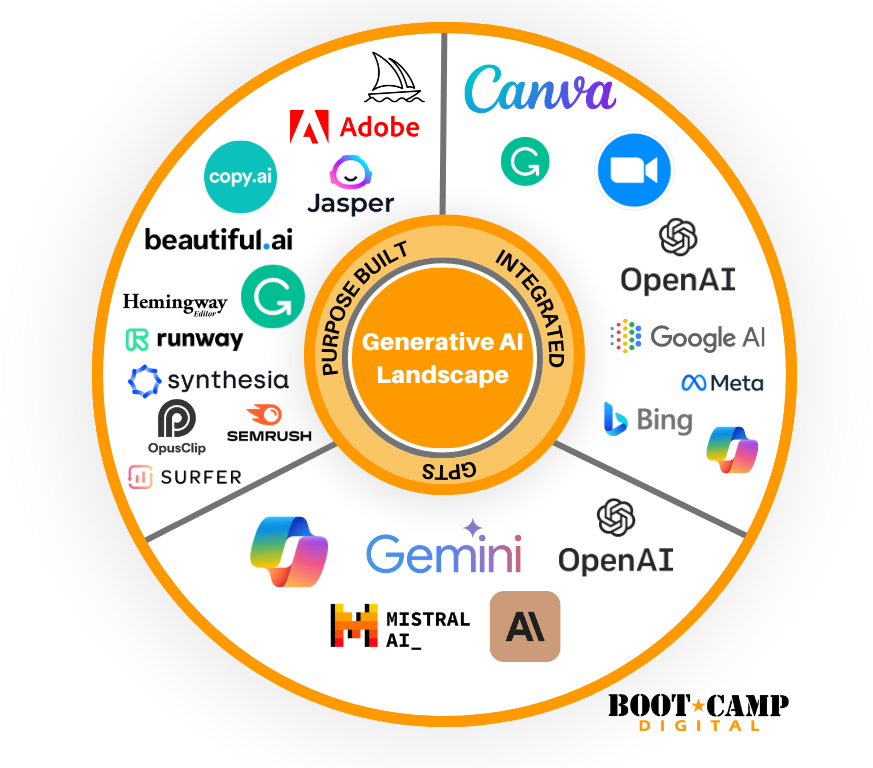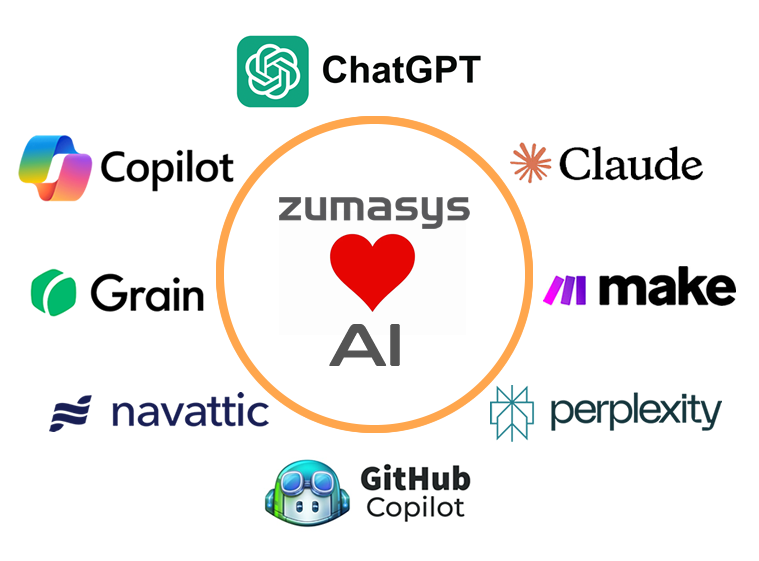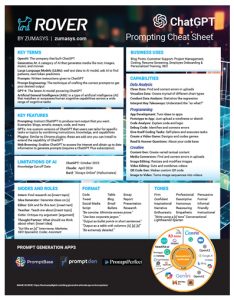A Beginner’s Guide to Leveraging AI for Business Growth
(Part 1 of 2)
Introduction
When we wrote about economic indicators recently, we promised we weren’t sitting on our hands waiting for the economy to improve. Recently, this commitment took us to a conference for wholesale distributors in the plumbing and HVAC industry, where we were sharing how our Rover Business Suite helps companies modernize their operations.
What struck us most wasn’t just how our Order Entry solution was making life easier for new sales and customer service teams (though that’s always great to see). It was the electric atmosphere when we started talking about AI. Business owners and managers who moments before were answering emails or browsing on their phones, were now engaged and leaning forward, eager to learn how AI could transform their daily operations. The questions we heard at the conference echoed what we’re hearing everywhere: How can we use AI to work smarter? How can we make our teams more efficient? How can we stay competitive?
We introduced three impactful AI tools: ChatGPT Professional for writing emails, discussing business decisions, data analysis and learning more about their products or industry; meeting transcription tools like Grain, Otter.ai, and Microsoft Teams for capturing and summarizing meeting notes and action items; and custom OpenAI GPTs—tailored versions of ChatGPT that serve as intelligent assistants, preloaded with product information, SOPs, and more. With these, businesses can provide fast, knowledgeable support for both employees and customers.
In this article, we’ll dive deeper into what AI can bring to your business and provide practical steps to help you start integrating these tools for maximum impact.
Understanding AI: What It Means for Your Business
AI, or artificial intelligence, is more than just a buzzword. It’s a way for machines to perform tasks that would normally require human intelligence—like learning, problem-solving, or even understanding and generating language. For businesses, AI offers a path to work more efficiently, make smarter decisions, and stay competitive without requiring extensive technical skills or budgets.
Common AI Capabilities for Businesses:
- Automation: AI can handle repetitive tasks, saving time and reducing human error.
- Data Analysis: AI quickly processes data, finding patterns and insights that might take humans days or weeks to uncover.
- Customer Engagement: AI can engage with customers in personalized, real-time interactions through tools like chatbots, improving customer satisfaction.

Key Areas Where AI Can Transform Your Business
AI, or artificial intelligence, is more than just a buzzword. It’s a way for machines to perform tasks that would normally require human intelligence—like learning, problem-solving, or even understanding and generating language. For businesses, AI offers a path to work more efficiently, make smarter decisions, and stay competitive without requiring extensive technical skills or budgets.
“Generative AI like ChatGPT can improve a worker’s performance and quality of work by nearly 40% compared with workers who don’t use it.” – MIT Sloan. AI has wide applications, but here are a few areas where businesses can see immediate impact:
- Decision-Making & Strategy: Tools like ChatGPT Professional and custom GPTs can help executives analyze data, generate options, and simulate different scenarios, aiding in more data-driven decisions.
- Marketing & Customer Engagement: AI enables highly targeted marketing by analyzing customer behavior and preferences, increasing engagement and conversion rates.
- Operations & Workflow Automation: AI tools can automate routine tasks in areas like accounting or inventory management, freeing up your team to focus on high-value initiatives.
- Employee Training & Support: Custom GPTs preloaded with product information and SOPs can provide fast, relevant support to new employees, making onboarding faster and more efficient.
At Zumasys, We Love AI
Our employees can’t stop using:

Some of our use cases:
- Marketing assistant
- Meeting recorder and transcriber
- Source code generator
- Technical writing/documentatio
- Support assistant
- Demo generation
- Task automation
- … and ERP assistant!
The Future is Here: Start Your AI Journey Today
AI is no longer just for tech giants; it’s a game-changing tool for businesses of all sizes. Starting small or going all-in, adopting AI can transform your operations, improve decision-making, and elevate customer experiences. The time to act is now.


